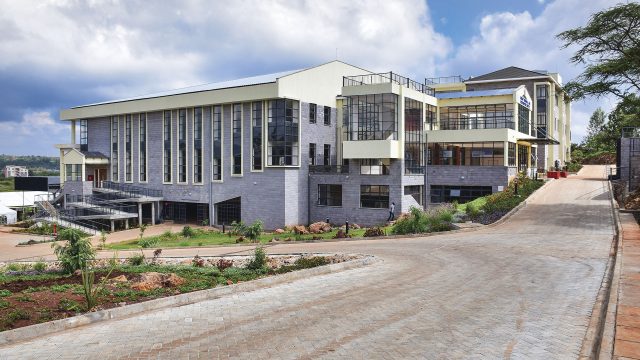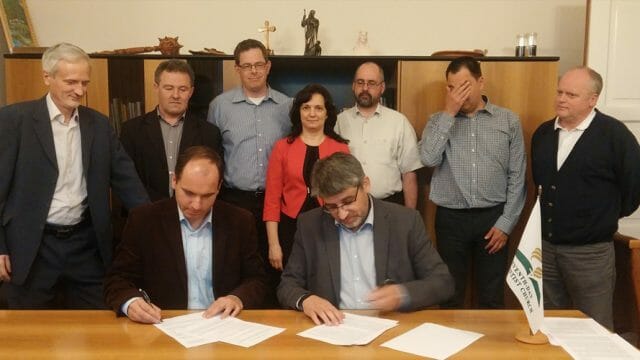Experts discuss role of faith-based NGOs in seeking peace, preventing conflicts.

“Today, we are here because we no longer wish to be spectators on the landscape of historical and emerging conflicts but actors on the world stage to bring about meaningful peaceful solutions.” These opening words by outgoing ADRA-UK communication and engagement lead Catherine Anthony Boldeau set the stage for the Faith in Peace event held in the Churchill Room at the House of Commons in Westminster, London, United Kingdom, on May 20, where 82 guests gathered to commemorate the International Day of Living Together in Peace, which is celebrated every May 16.
Organized by ADRA-UK and hosted by Watford Member of Parliament Dean Russell, this landmark event was the first of a week of celebrations to mark ADRA-UK’s 40th year as a non-governmental organization (NGO).
Russell acknowledged the work of providing relief and development to individuals worldwide and expressed his gratitude for the attendees’ efforts to make a difference. “It is important we recognize commonalities among people despite differences,” he said, “and I recognize the selfless work of faith-based organizations in Watford.”
Delegates interacted heartily over afternoon tea before the guest speakers presented their speeches. Attendees were drawn from the various entities of the British Union Conference (BUC), including Newbold College of Higher Education, the BUC office, the South and North England conferences, the Welsh, Scottish, and Irish Missions, and the Stanborough Press. Others included NGOs, academics, policymakers, practitioners, researchers, and the recently retired ADRA-UK CEO Bert Smit.
Helia Mateus, interim CEO for ADRA-UK, highlighted the importance of addressing the root causes of conflict and promoting peacebuilding initiatives, particularly in countries experiencing ongoing war, before introducing the keynote speaker, Zivayi Nengomasha, chief collective impact officer for ADRA International.
Nengomasha emphasized the importance of prioritizing prevention and investing in peacebuilding initiatives to address the root causes of conflict. She quoted UN Secretary-General António Guterres, who said, “We spend much more money and resources managing conflicts than preventing them and building peace.” She said we need to renew our priorities and resources and added that a comprehensive approach to peacebuilding is necessary to achieve lasting peace and stability. She said ADRA facilitates inter-religious reconciliation in South Sudan.
Two guest speakers, Emma Tomlin from Leeds University and Jennifer Egbert of the Joint Learning Initiative on Faith and Local Communities, discussed the significance of faith in promoting social cohesion and preventing conflicts. Both shared their research on the intersection of religion, international development, humanitarianism, and peacebuilding. Tomlin and Egbert said religion plays a complex role in conflict resolution and peacebuilding, with both positive and negative impacts, and they emphasized the need for collaboration with non-academic partners, evidence-based research, and contextualisation of religion’s role.
Boldeau topped the event by quoting from Winston Churchill’s 1946 “Sinews of Peace” speech, in particular, the Temple of Peace, and stated that “workmen from all countries must build this temple.” She closed with the famous prayer of St. Francis of Assisi that says, “Lord, make me an instrument of your peace.”
Commenting on the event, ADRA-UK board chair Eglan Brooks stated, “This was our first Parliamentary event, and I know that it will be the first of many. Let me congratulate Helia and the team for a meaningful event that not only represented the work of ADRA-UK as a faith-based organisation but represented the Seventh-day Adventist Church in the United Kingdom and the Republic of Ireland.”
The original version of this story was posted on the British Union Conference news site.














